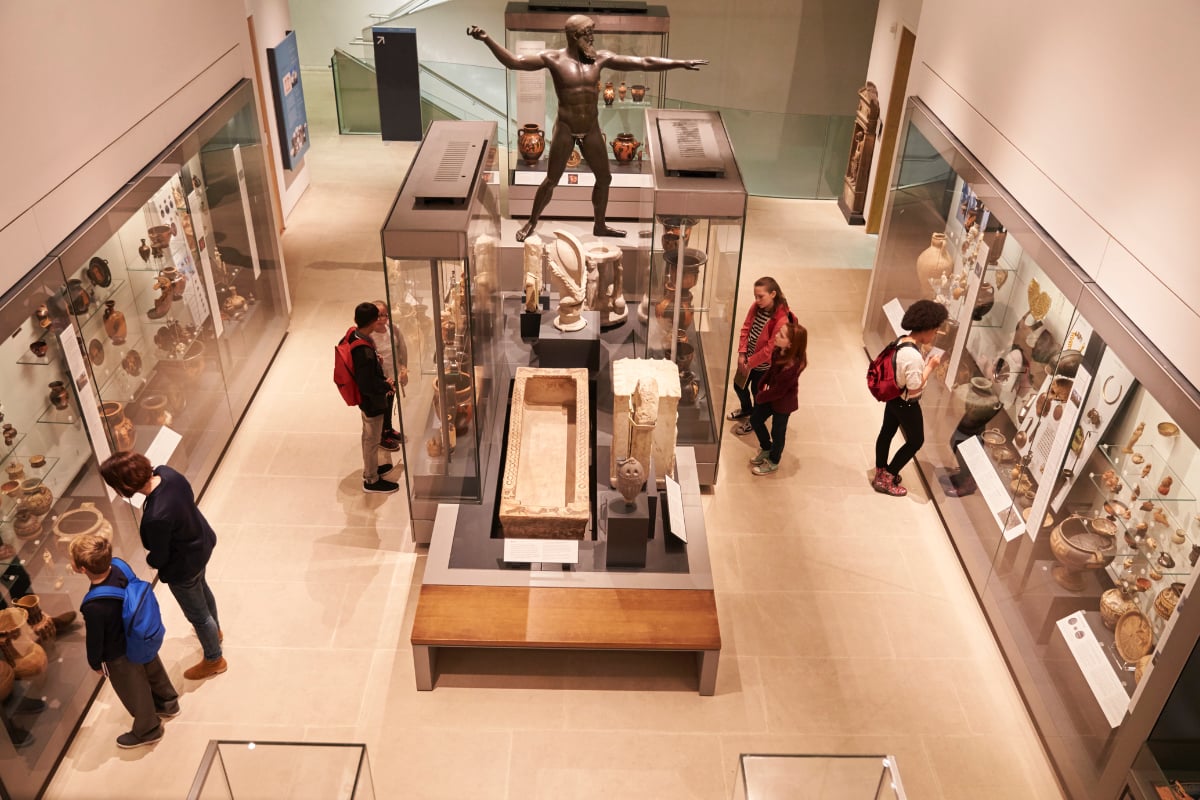
Photo: monkeybusinessimages
Economic value of culture research gets £3m boost
Funding for further research announced after scoping study finds “significant opportunities” in developing measures to calculate the value of sector and inform future investment.
More than £3m has been set aside to allow researchers to develop a holistic approach for capturing and articulating the value of culture and heritage to inform future policymaking decisions.
Co-funded by the Arts and Humanities Research Council (AHRC) and DCMS, the funding opportunity coincides with the publication of a scoping report into culture and heritage capital, which sets out the next steps towards developing a consistent approach to valuing culture and heritage assets through DCMS’ Culture and Heritage Capital (CHC) programme.
The report found there are “significant opportunities” in developing sophisticated ways of calculating the value of sector to inform future investment and decision making.
READ MORE:
Launched by DCMS in January 2021, the CHC programme aims to determine the value of culture by going beyond traditional economic registers using a "capitals" model which recognises that an asset’s value today depends not only on its physical condition and how well it is maintained, but also on the stream of future benefits expected to flow from it over its lifetime.
According to Lord Neil Mendoza, the government's Commissioner for Cultural Recovery and Renewal, the programme will “create consistency across the sector in both approach and methods, making bids fairer and improving confidence in the approaches used by the culture and heritage sector”.
Seven strands
AHRC and DCMS are now investing £3.125m into further research that supports the CHC programme, with up to £450,000 available for each of the seven strands of work, each comprising of a different research question.
The strands include developing precise definitions of culture and heritage assets (known as "stock" in the CHC framework), their benefits to society (known as "flows") and the background pressures that effect the assets (known as "services").
Research will also be conducted to develop a link between measurements of why people value culture and heritage and economic techniques to calculate their value in monetary terms. This could involve researchers putting financial worth on experiences such as emotions, aesthetics, spirituality, health and pride.
One strand looks to incorporate a ‘not-use’ value into the CHC framework, derived from the idea an individual can gain benefit from knowing a certain cultural good is available for others or future generations to use.
The AHRC suggests this could be done through quantitative experimental survey design, cognitive testing, and qualitative focus group work to ascertain what the non-use value means in the context of culture and heritage assets.
Another research area will look to disentangle the values of natural capital and culture and heritage capital when in close proximity, such as parks with monuments or historic houses with gardens, while another will look to understand the value of interventions that cause or stop irreversible damage to a cultural or heritage asset, such as repair works.
The final strand will consider the valuation of digital assets, by furthering research into the value of digital content and assets in terms of monetising the value to the public.
AHRC guidance says this research could look at one or two pilot projects, such as digital museum collections or digital performances, to develop an understanding of their value and how it may differ from physical engagement.
Funding guidance
Guidance on AHRC’s website states projects should be interdisciplinary and must include at least one arts and humanities researcher and one economist.
The latest scoping study was led by University of the Arts London Senior Research Fellow Dr Patrycja Kaszynska, alongside cultural sector partners, policy makers and researchers spanning arts and humanities, heritage science and economics.
“The CHC model provides a good way forward, provided it is developed through inter-disciplinary collaboration involving arts and humanities, heritage science, economics and other relevant fields, as well as the cultural sector and policy makers,” Kaszynska said.
“We welcome the funding call and commitment from the AHRC and DCMS to support this agenda.”
Applications for the funding programme are now open until 17 January 2023. Decisions are expected by end of June 2023, with projects starting between July and September next year.
Join the Discussion
You must be logged in to post a comment.